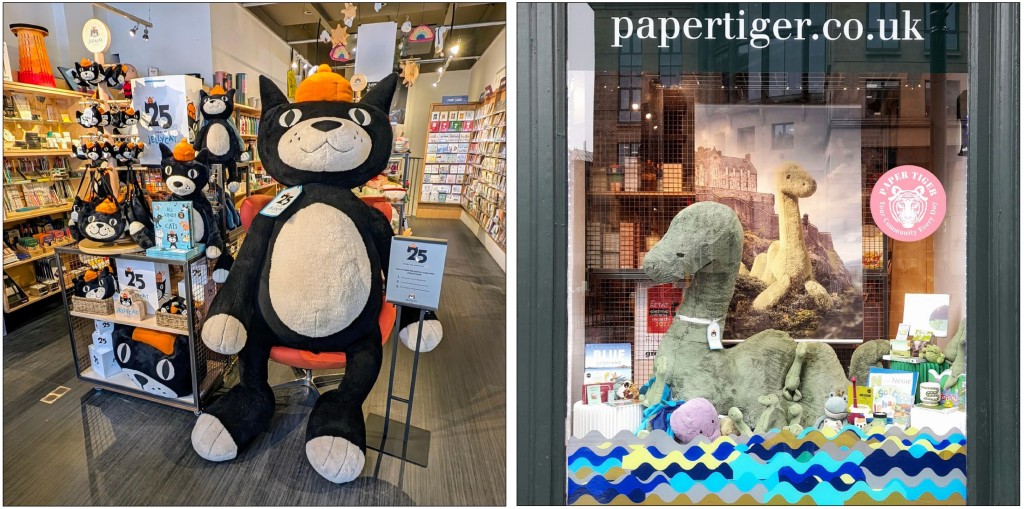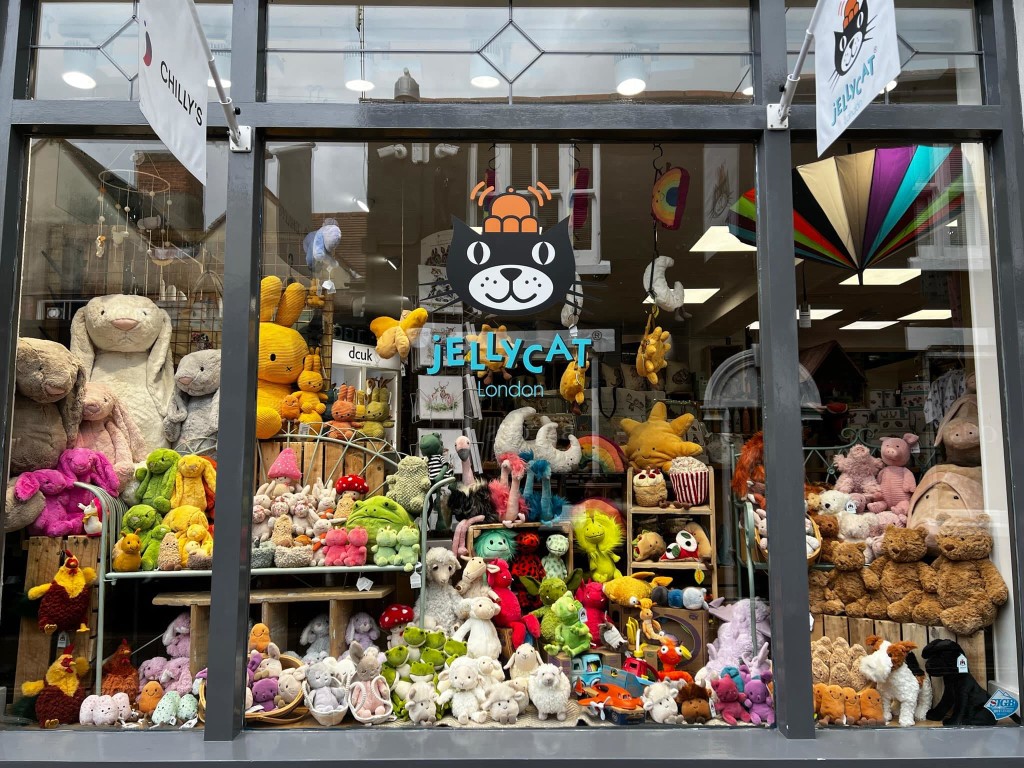Demand for plush toys sees ‘rapid growth’ as revenues rise to £200m
Jellycat’s owners are set for a £58million payday as demand for the soft toys saw the company’s revenues rise 37% to £200m, according to the latest filing at Companies House.
Celebrating its 25th anniversary, Jellycat’s products are top sellers for many greeting card and gift store retailers across the UK, and its offer of animals, Amuseables, bags and charms – which includes the latest Vivacious Aubergine Vampire, Ooky Spider and Bartholomew Bear Bat as well as the original Jack the cat – has pushed it “through a period of rapid growth” according to the annual report for the year to 31 December, 2023.

The filing has been covered by the Financial Times, and showed pre-tax profits increased 24% to £67m as Jellycat – which recently announced a planned change to its sales structure, replacing all its independent sales agents with an in-house team from the end of this year – sold more of its products through wholesalers and online, as well as achieving “consistent growth in its key markets of Europe, North America and Asia”.
The report for the privately-owned business states: “The company’s profit for the year after tax is £52,234,803 (2022: £43,409,708). We propose to pay interim and final dividends for the year to 13 December 2023 of £58m (2022: £9m) subject to approval by shareholders in 2023.”
Jellycat was founded by brothers William and Thomas Gatacre in London in 1999, and now has Arnaud Meysselle as CEO, having been appointed as a director in January 2022, who signed the report which is dated 5 September 2024.
Above: Regular social media reels reveal the latest Jellycat products at Bill & Bert’s
The company’s products are a favourite of Princess Charlotte, who was photographed with its Fuddlewuddle Puppy as a baby, and hit the headlines at the beginning of September when it took action against Aldi over its £4 version of a plush dragon which Jellycat said was a copy of bestseller Dexter Dragon, which normally sells for £27. The supermarket chain denied copying but stopped selling its toy after being contacted by Jellycat.
According to the Financial Times, William– who retired as a director in January 2023 – had previously said the company sought to disrupt the “stale toys market” more than 20 years ago, and named the brand after a suggestion from Thomas’ son.
“We seemed to get a loyal customer base quite early on,” William previously said in an interview with MBS Group, an executive search firm. “And then what felt like great victories began — deals with John Lewis, Paul Smith, Selfridges, The Conran Shop, Colette in Paris. They were little moments of joy…not huge projects commercially, but very exciting.”

In the annual report Jellycat said: “We recognise that employees are fundamental to our continued and future success. We seek to retain, attract and motivate employees by being an open, responsible employer that communicates well, demonstrating our high regard for pay and benefits, health and safety and a positive, enjoyable working environment.
“Our primary focus remains to invest and plan for future growth; develop our business model; and build the strength of our brands. These are long-term goals which remain valid during the period of economic uncertainty such as the high inflation rates. We do not anticipate that the external factors will fundamentally change our long-term vision for the business and we look forward with a positive outlook.”



















